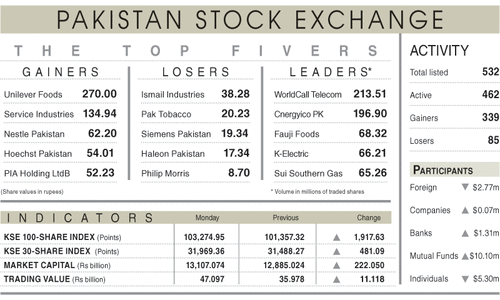BRUSSELS, Aug 30: Euro zone inflation slowed more than expected in August and inflation expectations plunged but economic sentiment also worsened more than forecast, underlining concerns the area may be heading for a technical recession.
The European Union’s statistics office, Eurostat, estimated consumer prices grew by 3.8 per cent year-on-year this month, down from an all-time peak of 4.0 per cent in July and a more pronounced slowdown than the 3.9 per cent expected by markets.The estimate for the 15 countries sharing the single currency does not contain a monthly figure or a detailed breakdown, which will be available on Sept 16.
“This decline is solely due to the sharp fall in crude oil prices. If oil settles at its current level, inflation will drop to 2.5 by the end of the year,” said Christoph Weil, economist at Commerzbank.
Separately, the European Commission’s monthly economic sentiment indicator for the euro zone fell to 88.8 points this month from 89.5 points in July, well below economists’ expectations of a decline only to 89.1 points.
The decline was driven mainly by falling confidence in industry and retail trade, despite better sentiment among consumers and in the services sector.
“This represents the lowest reading since early 2003 and is consistent with stagnation in the economy and a genuine risk of recession,” said Ken Wattret, economist at BNP Paribas.
The data depressed the euro against the dollar and Sept Bund futures rose as it diminished chances of a European Central Bank rate rise despite the bank’s hawkish rhetoric triggered by an inflation rate twice the ECB’s target.
More good news on inflation came from the Commission survey of inflation expectations among consumers, which plunged to 22 points in August from 30 in July and below the long-term average of 23. Producer price expectations fell to 17 from 20 points.This is likely to please the ECB, which wants inflation to be just below two per cent and raised interest rates by 25 basis points to 4.25 per cent in July to better anchor inflation expectations amid soaring food and fuel prices.
ECB Governing Council member Klaus Liebscher said earlier on Friday the bank would pay special attention “to keep inflation expectations in tune with the target of price stability.”
With growth weakening sharply and oil prices, one of the main drivers of inflation, on the decline, economists expect the ECB’s next move is now more likely to be a cut than a rise.
“This all supports our view that the ECB will eventually cut rates pretty aggressively, although worries over the inflation outlook will keep the bank on hold for some months yet,” said Jennifer McKeown, European economist at Capital Economics. But ECB policymakers were keen earlier this week to douse speculation such a move could happen any time soon.—Reuters













































Dear visitor, the comments section is undergoing an overhaul and will return soon.